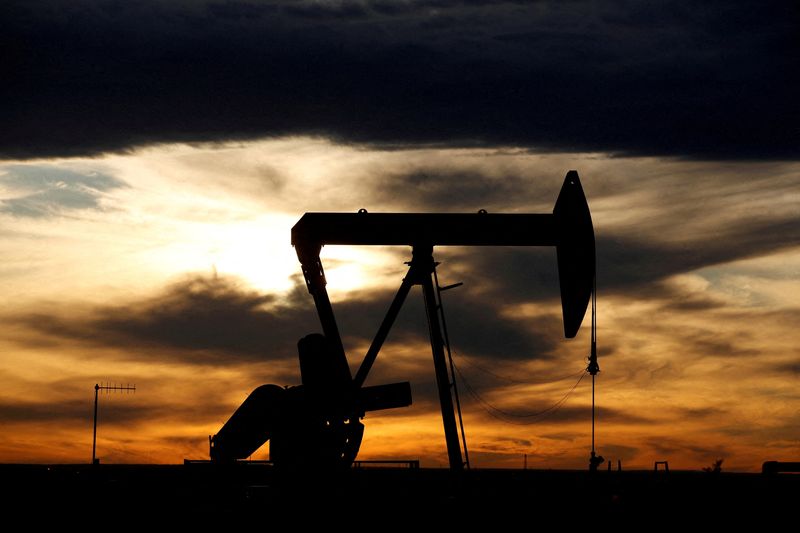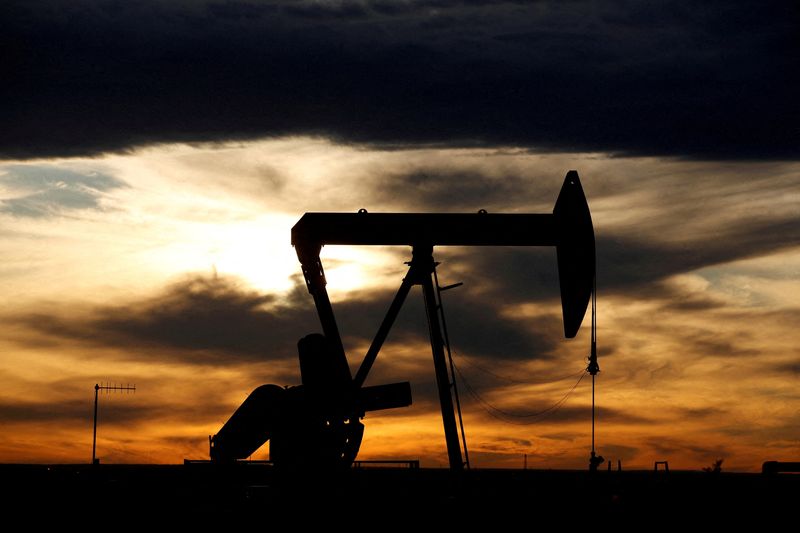
By Colleen Howe and Jeslyn Lerh
SINGAPORE (Reuters) -Oil prices fell on Friday on worries about demand growth in 2025, especially in top crude importer China, putting global oil benchmarks on track to end the week down nearly 3%.
Brent crude futures fell by 41 cents, or 0.56%, to $72.47 a barrel by 0420 GMT. U.S. West Texas Intermediate crude futures fell 39 cents, or 0.56%, to $68.99 per barrel.
Chinese state-owned refiner Sinopec (OTC:SHIIY) said in its annual energy outlook, released on Thursday, that China’s crude imports could peak as soon as 2025 and the country’s oil consumption would peak by 2027 as diesel and gasoline demand weaken.
“Benchmark crude prices are in a prolonged consolidation phase as the market head towards the year end weighed by uncertainty in oil demand growth,” said Emril Jamil, senior research specialist at LSEG.
He added that OPEC+ would require supply discipline to perk up prices and soothe jittery market nerves over continuous revisions of its demand growth outlook. The Organization of the Petroleum Exporting Countries and allies, together called OPEC+, recently cut its growth forecast for 2024 global oil demand for a fifth straight month.
Meanwhile, the dollar’s climb to a two-year high also weighed on oil prices, after the Federal Reserve flagged it would be cautious about cutting interest rates in 2025.
A stronger dollar makes oil more expensive for holders of other currencies, while a slower pace of rate cuts could dampen economic growth and trim oil demand.
J.P. Morgan sees the oil market moving from balance in 2024 to a surplus of 1.2 million barrels per day (bpd) in 2025, as the bank forecasts non-OPEC+ growth increasing by 1.8 million bpd in 2025 and OPEC output remaining at current levels.

In a move that could pare supply, G7 countries are considering ways to tighten the price cap on Russian oil, such as with an outright ban or by lowering the price threshold, Bloomberg reported on Thursday.
Russia has evaded the $60 per barrel cap imposed in 2022 using its “shadow fleet” of ships, which the EU and Britain have targeted with further sanctions in recent days.
This post is originally published on INVESTING.


